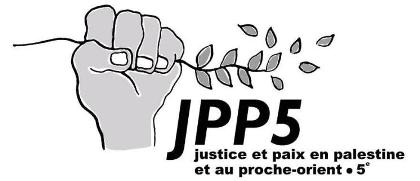~~12696353_10207462299190010_627410963_o
Israel’s collective punishment Human
Rights 93 Views Share• Facebook • Twitter • Google + • Stumbleupon • LinkedIn • Pinterest Related Articles 12661979_1085052138238353_5798860685442500620_n Al-Qiq health conditions deteriorates once again 7 hours ago Untitled-1 Al-Qiq rejects Israeli court temporarily decision, strike continues 1 day ago
PNN/Jenin Since Wednesday night, February 3, the Israeli occupation forces (IOF) has imposed a closed military zone on the village Qabatiya, reportedly preventing all entrances and exits to and from the Jenin-district town, which counts 25,000 inhabitants.
This follows the Wednesday’s combined shooting and stabbing attack carried out by three Palestinian youths, killing 19-year old Israeli occupation policewoman Hadar Cohen at the Damascus Gate in occupied East Jerusalem’s Old City.
According to locals, the IOF closed the Khirbat al-Wahid road on Friday with bulldozers, cutting off the last opening for movement in and out of the town, apart from humanitarian concerns.
The seven entrances have all been blocked off with large mounds of dirt dug from the village’s land according to Middle East Eye (MME).
Agricultural roads that locals had been using as detours to cross out of the town were also closed.
House demolition, road closures, intensive security checks, and complete blockades of villages or districts have become commonplace in the occupied territories, despite criticism from the international community and human rights groups that the measures operate as collective punishment.
Since Wednesday, at least 13 residents of Qabatiya have been injured by live fire and tear gas during clashes with IOF.
A 15-year-old boy was also critically injured after being run over by a military jeep. Palestinian Prime Minister Rami Hamdallah on Saturday decried according to Maan News the “collective punishment” imposed by Israel on residents of Qabatiya.
“Ongoing Israeli policies of collective punishment, field executions, and blockading Palestinian cities, villages, and refugee camps will worsen the security situation in the area,” Hamdallah said.
“By confining our people and suffocating them with military checkpoints, Israel is violating all international laws and conventions,” he added.
The Prime Minister held Israel responsible for the ongoing deterioration of the situation in Qabatiya, because the inhabitants have seen ongoing clashes between the local youths and military forces.
The village’s mayor, Mahmoud Kameel, who shares his last name almost half its residents, said in an interview with MEE, he believed Israel’s actions were unconscionable and amounted to collective punishment.
“Punishing 25,000 people because of the actions of three teenage boys – in what country is that okay?”
Kameel said. “These people didn’t do anything, but they are here stuck in their homes, not able to work, not able to live because Israel has chosen to punish tens of thousands for the actions of three boys.” he added.
Ahmad Mohammed Kameel, the father of one of the three teenagers in the Jerusalem attack, told MEE that he agreed with the mayor’s sentiment.
His son was not political, he said, but the pressure of the current upheaval could have been a breaking point and the trigger to “fighting the occupation”.
Ahmad did not condemn his son’s actions, saying that any Palestinian would be honored to have a “martyr” in their family, much like other countries supporting their fallen soldiers.
But there are feelings of loss. “I am just thankful for the support of my village,”
Ahmad said. While Ahmad is sure his home will be destroyed, the youths of the village have vowed not to allow the demolition to happen without a fight.
Sari Bashi, a spokeswoman for Human Rights Watch, told MEE that it was not necessarily unlawful to close the entrance to a village for a short time, for example to arrest a suspect.
However, “if the closure were to continue it would risk being disproportionate, or even a measure imposed for reasons for collective punishment”.
http://english.pnn.ps/2016/02/06/israels-collective-punishment-2/


